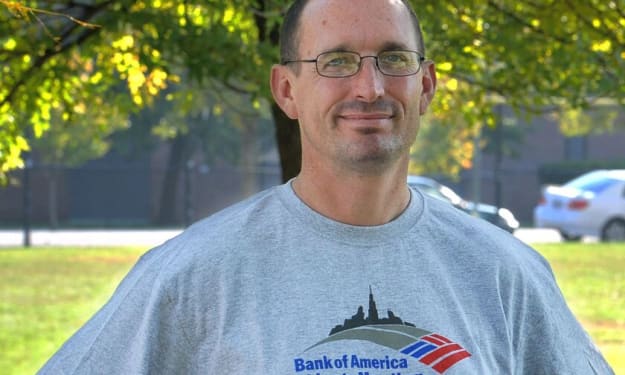Robert Geiger Teacher | Track Star Turned Coach - Navigating the Coaching Curve
Cross Country Greatness by Robert Geiger Coach

Robert Geiger, like many others, found himself transitioning from an esteemed track athlete to a dedicated coach, an evolution that illustrates a significant shift in viewpoint and obligations. This metamorphosis from tearing up the track to mentoring others on it is a daunting yet enlightening journey. It's a journey that requires more than just an in-depth understanding of the sport. In fact, it calls for a comprehensive grasp of coaching strategies, robust communication skills, and the ability to ignite passion and motivation within the athletes. The path that Robert Geiger embarked on allowed him not only to carry forward his legacy on the track but also to mold the upcoming generation of athletes. It's not just about passing on techniques; it's about instilling the same dedication, perseverance, and love for the sport that drove his own athletic career.
He is a notable figure who has made significant contributions to DePaul's athletics program, particularly the Cross Country and Track teams. Following a successful stint as a student-athlete, Geiger transitioned into a coaching role, where he continues to inspire and guide fellow athletes. His legacy also extends beyond DePaul, as he is recognized within a 'fraternity' of former runners who have ventured into coaching. Born and raised in Illinois, his journey is a testament to his dedication, leadership, and passion for athletics.
Successful track stars turned coaches recognize the significance of adapting coaching styles to the unique needs of each athlete. The ability to understand and appreciate individual strengths and weaknesses is paramount. A coach must tailor training programs, provide personalized feedback, and offer support that caters to the distinct requirements of each athlete under their guidance. This personalized approach fosters a culture of trust and respect between coach and athlete, creating an environment conducive to optimal performance.
Communication emerges as a cornerstone of effective coaching, bridging the gap between knowledge and application. Track stars accustomed to relying on their physical prowess must develop the ability to articulate their insights, strategies, and expectations clearly. The transition from demonstrating skills on the field to articulating them in a manner understandable to diverse athletes requires effective communication skills. Coaches must be adept at conveying technical information, offering constructive criticism, and providing motivation in a manner that resonates with each athlete.
Beyond verbal communication, successful track star coaches recognize the importance of non-verbal cues in creating a positive and motivational atmosphere. Body language, gestures, and demeanor play crucial roles in conveying encouragement, instilling confidence, and fostering a sense of unity within the team. A coach's ability to inspire goes beyond words; it is embodied in their actions and demeanor.
Navigating the coaching curve, as Robert Geiger has experienced, also entails a comprehensive understanding of the psychological aspects of performance. Coaches, especially those who were once track stars themselves like Geiger, must delve deeper into the mental aspects of the sport. They need to recognize the significant impact of mindset, confidence, and resilience on an athlete's performance. Coaching, in essence, extends far beyond the realm of physical training. It involves the cultivation of mental fortitude, emotional resilience, fostering a positive outlook in the face of challenges, and more. These are the elements that transform a good athlete into a great one, and Robert Geiger's journey in coaching serves as a testament to this truth.
Embracing the coaching role requires a departure from the purely results-driven mindset of an athlete to a more holistic perspective. While the pursuit of excellence remains a central theme, the definition of success expands to encompass the development of athletes as individuals. A successful coach measures success not only in terms of podium finishes but also in the growth, resilience, and character development of each athlete under their tutelage.
Effective time management emerges as another critical skill for track stars turned coaches. Balancing administrative responsibilities, training sessions, competition schedules, and individual athlete needs demands a meticulous approach. Coaches must navigate the intricate web of planning and execution to optimize the team's performance while attending to the unique requirements of each athlete. This juggling act underscores the multifaceted nature of coaching and the importance of organizational prowess in achieving success.
The transition from athlete to coach also prompts a shift in the locus of control. Athletes are accustomed to having direct control over their training, performance, and outcomes. Coaches, on the other hand, operate more as facilitators, guiding and supporting athletes in their journey. The ability to relinquish a degree of control and empower athletes to take ownership of their progress is a hallmark of effective coaching.
The evolution from track star to coach is a continuous learning process. Successful coaches are avid learners, constantly seeking opportunities to expand their knowledge, stay abreast of advancements in sports science, and refine their coaching methodologies. The commitment to ongoing education ensures that coaches remain dynamic and adaptable in an ever-evolving sporting landscape.
Moreover, track stars turned coaches must embrace the role of mentorship. Beyond the technical aspects of the sport, coaches become influential figures in the lives of their athletes. Guiding them not only in their athletic pursuits but also in personal development, goal-setting, and life skills, coaches play a pivotal role in shaping the character of the individuals under their guidance. The impact of a coach extends far beyond the confines of the track, leaving an indelible mark on the lives of those they mentor.
The transition from track star to coach represents a profound and challenging journey. Robert Geiger is an example of a successful navigation of the coaching curve which requires a multifaceted skill set, encompassing effective communication, personalized coaching approaches, a deep understanding of the psychological aspects of performance, and a commitment to ongoing learning. The evolution from an individual focus on personal excellence to a collaborative effort aimed at nurturing the potential of a diverse group of athletes. This demands resilience, adaptability, and a passion for both the sport and the development of those who partake in it. As track stars like Geiger turn the page to the next chapter of their careers, embracing the challenges and opportunities of coaching opens new vistas for personal and professional growth, leaving an enduring legacy in the world of athletics.
About the Creator
Robert Geiger Whitey Young
Robert Geiger Teacher, a name that resonates with passion for cross-country and track, is a testament to a unique breed of individuals who transitioned from athletes to coaches. Robert Geiger Coach
Enjoyed the story? Support the Creator.
Subscribe for free to receive all their stories in your feed. You could also pledge your support or give them a one-off tip, letting them know you appreciate their work.






Comments
There are no comments for this story
Be the first to respond and start the conversation.